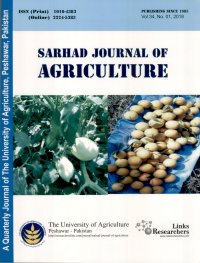Public Sector Advisory Services for Rice Productivity: A Case Study of Farmers’ Awareness in Tehsil Shakargarh of Pakistan
Public Sector Advisory Services for Rice Productivity: A Case Study of Farmers’ Awareness in Tehsil Shakargarh of Pakistan
Muhammad Yaseen1*, Muhammad Sallam Shahzad2, Farhat Ullah Khan2, Muhammad Luqman1, Usman Saleem3 and Shoaib Nasir4
ABSTRACT
To share on other social networks, click on any share button. What are these?







